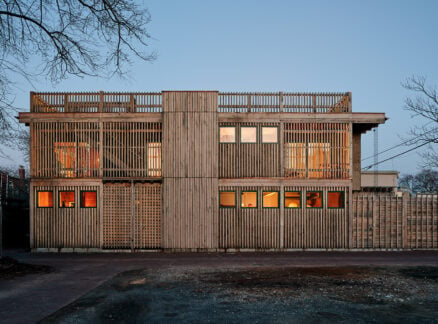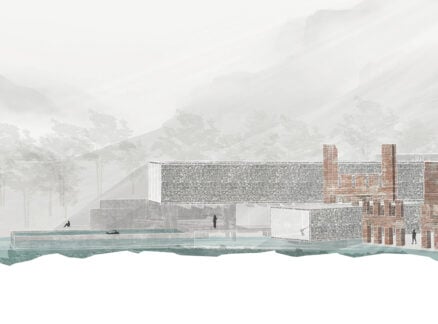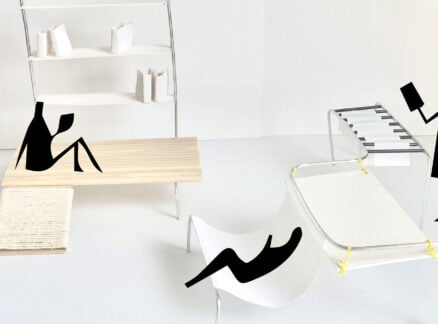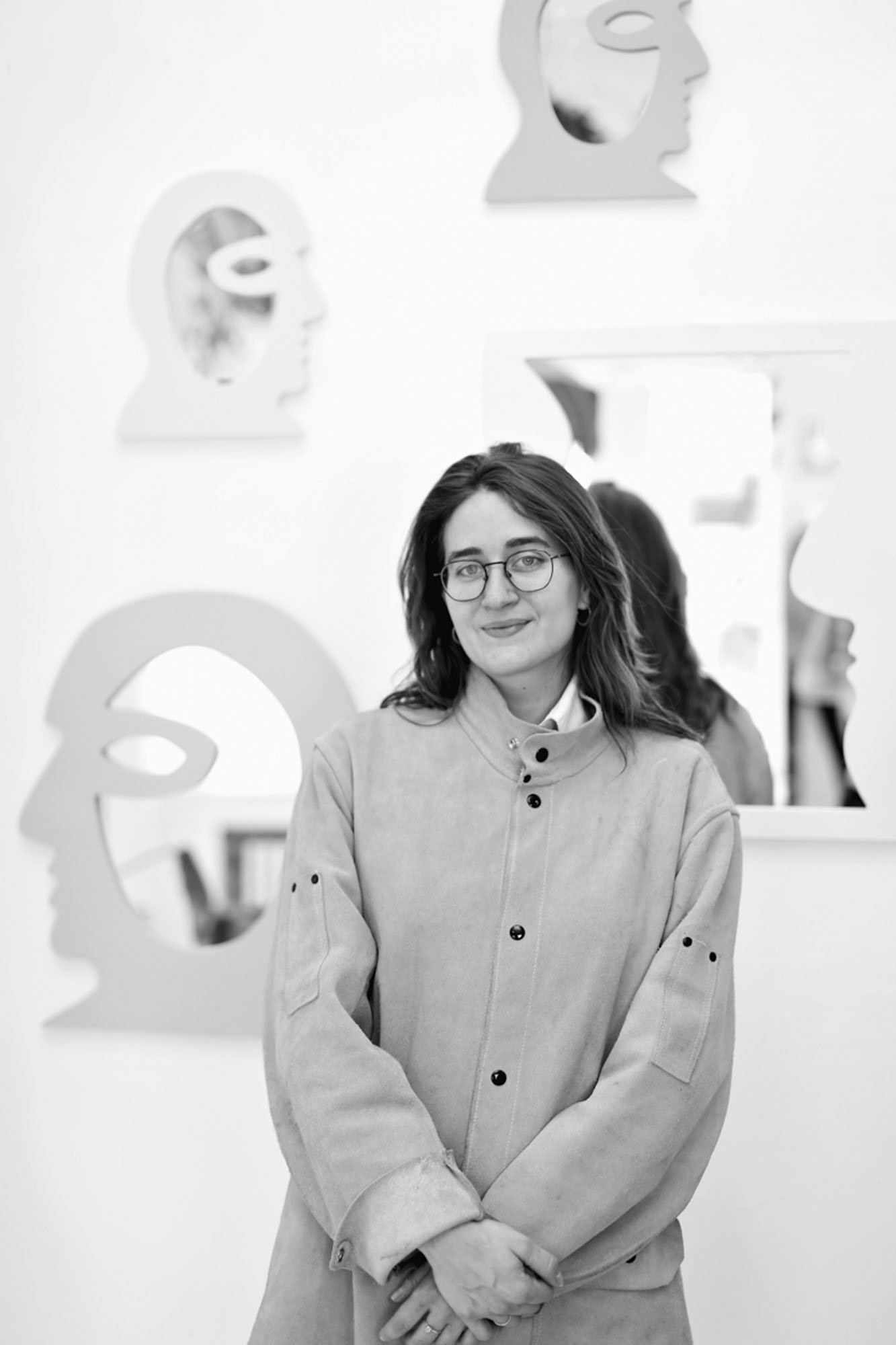
April 30, 2021
LikeMindedObjects Uses Waste to Create Sustainable Products With Personality
In addition to running her Hudson, New York studio and storefront, Elise McMahon of LikeMindedObjects has recently launched a collection of recycled pillow inserts called CRCL EARTH.

We often think about the objects we surround ourselves with as possessions rather than companions. But objects also reflect ideas about ourselves, our values, and our intentions. These qualities echo below the ethos of LikeMindedObjects, a Hudson, New York–based studio and storefront founded by artist and designer Elise McMahon. “To me, everything we purchase we’re relating to the worlds that we’re making in our home space but also our mental space,” McMahon says. Her playful lighting, furniture, and interiors certainly have bold personalities, but they also have a strong underlying mission: to divert waste while creating new standards for sustainable design.
A few years after graduating with a BFA in furniture design from Rhode Island School of Design, McMahon launched LikeMindedObjects in 2014 as an extension of the performative installations she was focused on at the time. She says: “People started [commissioning] me to create things based on what I was doing in galleries, but for everyday life. I was like, ‘Oh, people are actually accepting these wild things.’ ”
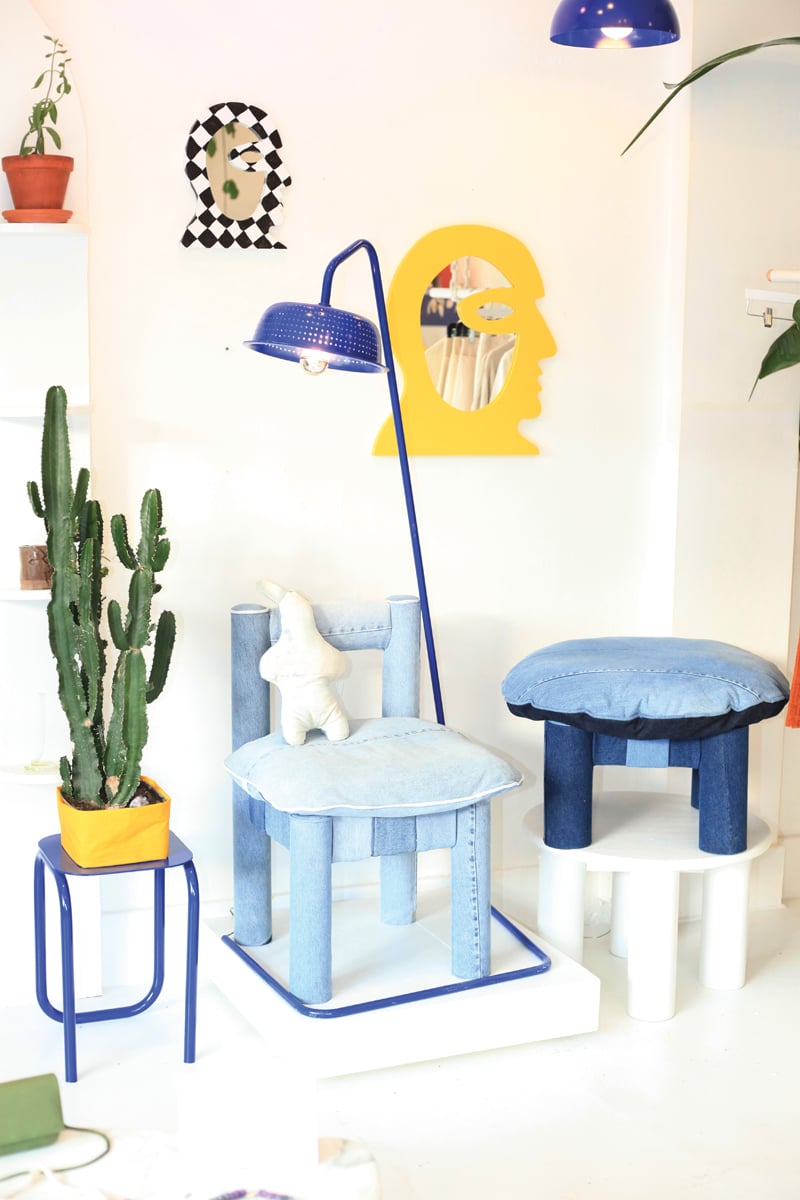
the use of bold colors, face motifs, and recycled materials. Courtesy Hanna Grankvist
In 2018, she opened a brick-and-mortar shop in Hudson with her friend, clothing designer Enky Bayarsaikhan. Entering the checkerboard-painted storefront, visitors find themselves immersed in McMahon’s funky world of squiggly floor lamps made using car brake rotors, seating upholstered in blue jeans or dyed with turmeric, and face-shaped mirrors and tables that return a gaze. But underneath the studio’s Pop art-style colors and DIY aesthetic lies rigorous research into recycled content and material health.
McMahon’s interest in waste diversion was fostered in part by her long-standing role as a resourceful home goods design director and storytelling partner for the Kokrobitey Institute in Ghana, an educational organization that promotes health and literacy through sustainable development, art, and design. “There is this global waste stream that really floods [Ghana’s] market. It’s basically fast-fashion waste from the U.S. and U.K.—things we don’t want because our consumer culture is overproducing and over-disposing,” she explains. “Being there really opened my eyes to this intensely overflowing river of materials that is ending up in other people’s landfills, beaches, and incinerators.” At the institute, she helped design and develop a center for education, coworking, and manufacturing as well as a furniture collection. Once the pandemic subsides, she plans to go back and launch an annual program for design students to learn more about waste streams with an aim of “designing to keep materials in your home country.”

As if operating a small business during a global pandemic weren’t taxing enough, McMahon last year also completed an MFA in industrial design from Parsons School of Design—a program she enrolled in with a commitment to learning more about life cycle analysis as she grows her business. Her most recent endeavor, CRCL EARTH, is a line of pillow inserts made from recycled fast-fashion textiles and cotton denim covers. The brand launched last fall and McMahon plans on scaling up production in order to supply interior and textile designers with healthier alternatives to industry-standard, petroleum-based foam. Like her products designed for LikeMindedObjects, all CRCL EARTH collections are manufactured in collaboration with producers and suppliers local to the Hudson Valley.
In April, LikeMindedObjects moved to a larger storefront in Hudson, and McMahon has a few other projects in the works, including an exhibition of material experiments at Manhattan’s Entrance Gallery and a collaboration with a local farm, Tivoli Mushrooms, on growing mushrooms in textile and electronic waste. Believing we shouldn’t just accept our objects as backdrop but rather see them as “personalities,” McMahon pursues work that considers the “conversations” products have with both our domestic and global environments.
You may also enjoy “Landscape Architecture Has a Labor Acknowledgement Problem”
Would you like to comment on this article? Send your thoughts to: [email protected]
Register here for Metropolis’s Think Tank Thursdays and hear what leading firms across North America are thinking and working on today.









